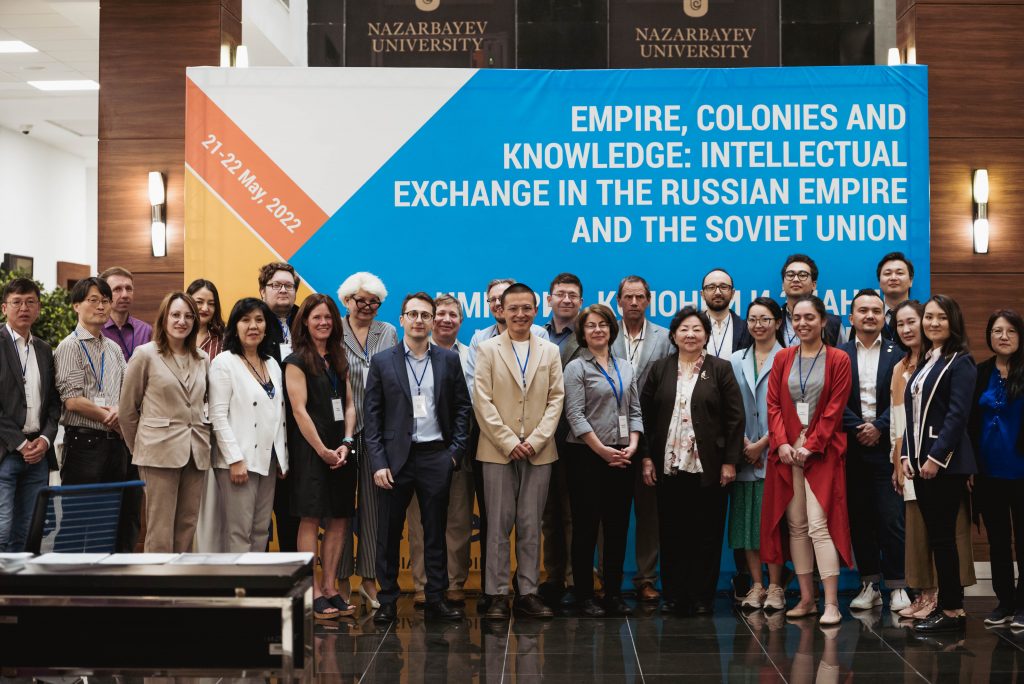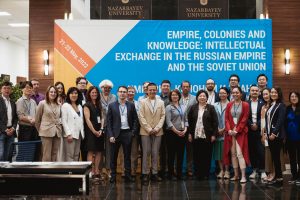NU hosted an International Conference with Harvard University on Central Asian history

From May 21st to 22nd, Nazarbayev University hosted the International Conference “Empire, Colonies, and Knowledge.” in partnership with Harvard University.

It was the first major in-person humanities and social science conference since the pandemic, an event organized with an eye on potential future cooperation between the universities. As Dr. Nargiz Kassenova, a conference co-organizer and a Senior Fellow for the Program on Central Asia at the Davis Center for Russian and Eurasian Studies at the Harvard University remarked: “Hopefully, the Conference will become one of many events, and workshops in the coming future and develop into a tradition shared between our universities.”
The faculty and the students of the NU took an active part in organizing the conference. Their hard work and dedication were the two crucial factors in making it into an impressive display of what our university has attained and what it aspires to become.
The conference boasted a number of prominent scholars from Kazakhstan, the United States, Japan, Germany and Russia. They have presented their current and past research projects and dissertation excerpts facilitating the exchange of ideas and promoting further academic explorations in this field. Their presentations generated a lively response for the audience, whose questions and comments accentuated the high relevance of the conference’s thematic thrust.
A definite highlight was the keynote address by Terry Martin, Professor of Russian Studies in the History Department at Harvard University, and the author of the seminal book on the Soviet nationality policies ‘The Affirmative Action Empire: Nations and Nationalism in the USSR, 1923–1939’. In his address he reflected, among other aspects, on contradictions and paradoxes in the Soviet conceptions of nationality, gesturing at their long-term and still reverberating ramifications.
Another highlight was the presentation of a project called ‘Imperiia,’ initiated and directed by Dr. Kelly O’Neil, a Harvard historian of the Russian Empire and a committed advocate of spatial approaches to history. This project aims at collecting archival documents and maps and interpreting them using GIS and other digital tools. Prof. O’Neil’s undertaking resonated strongly with our faculty, who are working on a methodologically related project ‘Sacred Geography of Kazakhstan.’
All in all, this conference was an impressive success, bringing together top experts, establishing a platform for exchange, and creating new and exciting venues for future collaboration.



